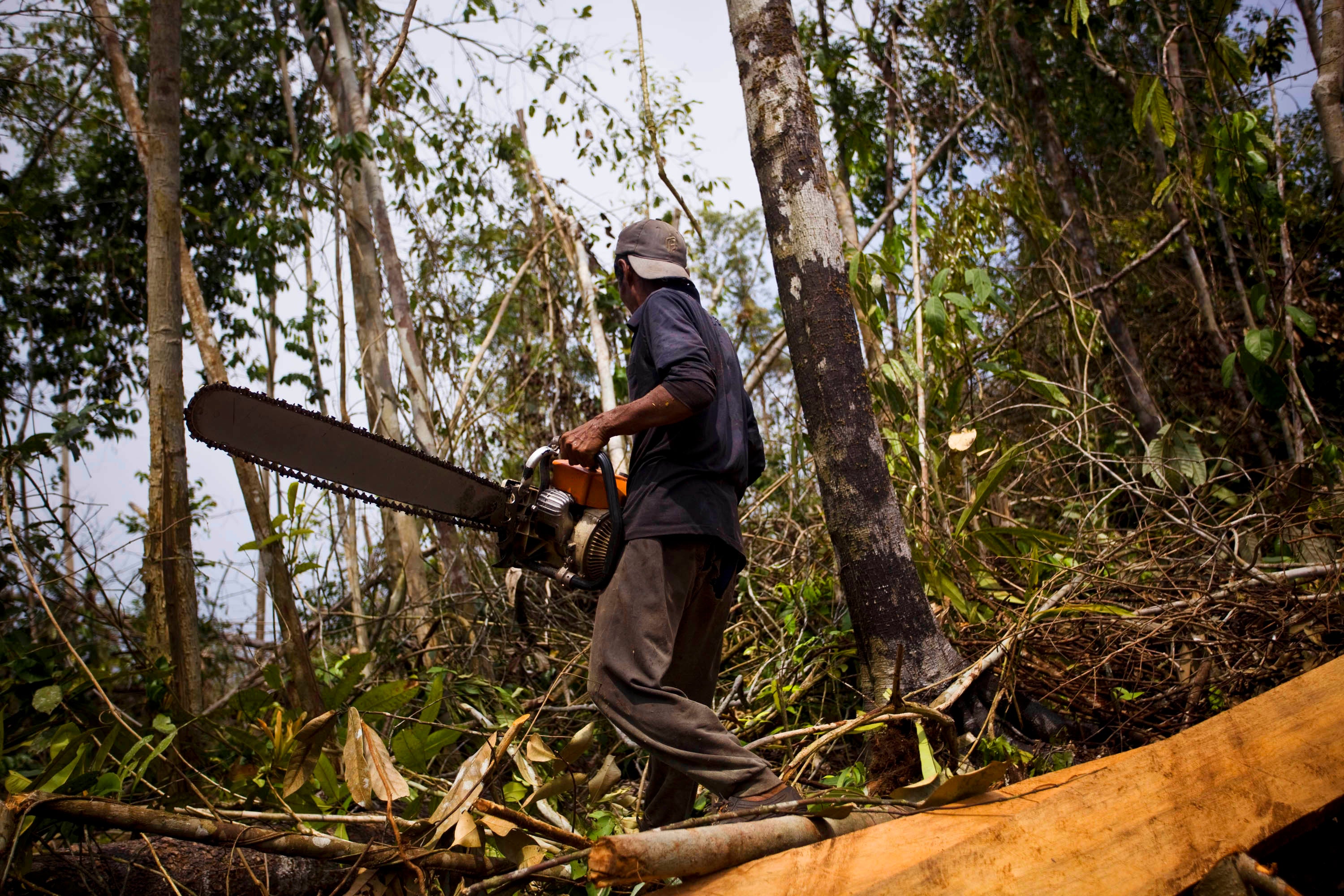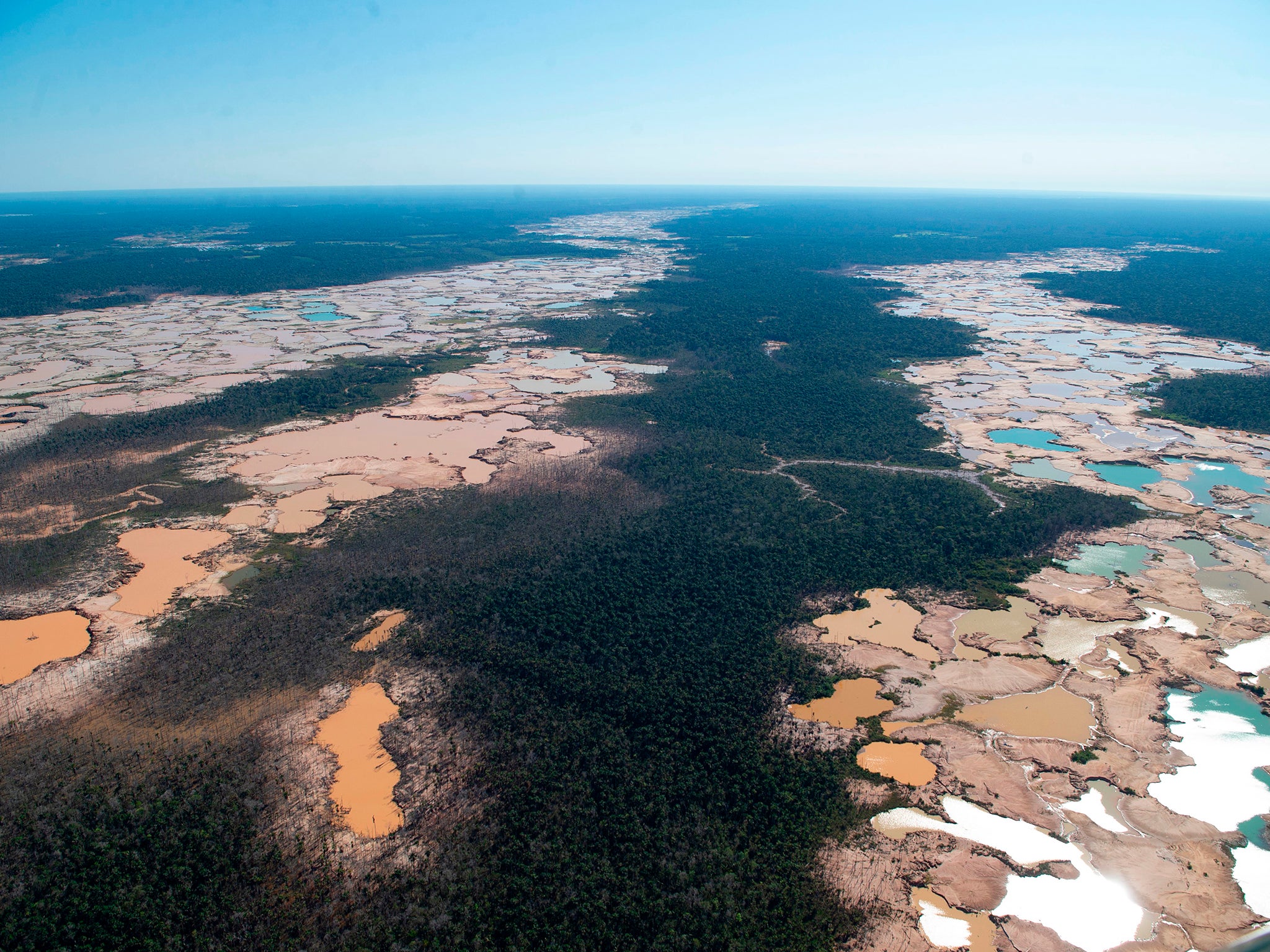G7 summit: How can leaders help tackle deforestation and nature loss?
The first in-person meeting of leaders since the start of the pandemic provides an important opportunity to tackle the rapidly worsening climate crisis, says Daisy Dunne


As CO2 levels continue to climb and the loss of nature intensifies, leaders are facing more pressure than ever to take urgent action on the world’s rapidly worsening climate and biodiversity crises.
The upcoming G7 summit taking place in the UK, the first in-person gathering of world leaders since the start of the pandemic, is being billed as one of several key events taking place this year that could force countries to act on environmental issues.
On Friday, leaders of the G7 nations – US, Japan, Germany, France, the UK, Italy and Canada – will meet in Cornwall for a three-day summit. Other countries invited to attend as guests include Australia, South Korea and South Africa. India has also been invited to attend, but will take part virtually due to the severity of Covid cases in the country.
One environmental issue likely to be up for discussion is the rapid disappearance of the world’s forests. Deforestation is a major driver of the climate crisis, accounting for around 11 per cent of global greenhouse gas emissions, and is also one of the chief causes of biodiversity decline.
Most deforestation takes place in the world’s tropical region. Three-quarters of all tropical deforestation is driven by agriculture, with beef production responsible for 41 per cent of all forest loss and palm oil and soybeans accounting for another 18 per cent. In addition, around 13 per cent of tropical deforestation is linked to logging for paper and wood.
In a bid to tackle tropical deforestation, the UK last year set out a “world-leading” law to stop UK businesses from using commodities linked to illegal deforestation in other countries. Under the new rules, UK firms will be forced to carry out due diligence on their supply chains to show the commodities they use were produced in line with local laws protecting forests.
As hosts of the G7 summit, the UK should press other developed nations to adopt similar regulations, said Sir Oliver Heald, a Conservative politician and member of the Conservative Environment Network.

“I think an agreement on due diligence, like the sorts of obligations we’re introducing in Britain, would be very valuable,” he told a press briefing hosted by the Energy and Climate Intelligence Unit (ECIU), a non-profit based in London, on Tuesday.
However, even the UK’s tougher deforestation rules have come under fire from environmental campaigners. In November, Greenpeace said the new regulations would do “almost nothing” to tackle forest loss because they only apply to illegal deforestation, rather than all types of deforestation.
“This new government proposal simply asks UK businesses to follow local laws relating to deforestation in the countries where they operate, no matter how weak those laws are, or how poorly enforced,” added Kierra Box, a campaigner at Friends of the Earth.
Addressing the criticisms at the briefing, Sir Ian Cheshire, a businessman and chair of the Global Resource Initiative taskforce, a group that advised the government on how it could reduce the environmental impact of UK supply chains, said the new rules were the “right place to start”.
“There’s an estimate that at least 80 per cent of deforestation around the world is illegal anyway so you do capture most of the deforestation issues by focusing on the legal standards,” he said.
“We felt that putting into law the idea that [businesses] need to know if they are using products linked to illegal deforestation was the best way to start. There’s no doubt that there will be further conversations.”
Both Sir Oliver and Sir Ian also urged the government to use the G7 summit as an opportunity to secure more funds to help countries pursue “nature-based solutions” to the climate crisis, which includes tree-planting and the restoration of carbon-rich ecosystems such as peatlands, mangroves and underwater kelp forests.
“Mobilising large sums of money [will be needed] to see some major projects on reforestation and regenerating nature,” said Sir Oliver.
He added that the G7 countries should also heed the words of a recent UK-led review on the economic value of biodiversity by setting up a system for rewarding nations who restore nature.
“I’d like to see some sort of trading system which enables you to say: ‘I have recovered a whole area of nature and I’d like to be able to have some sort of financial benefit for that,’” he said.
“This is something I’ve been pressing on in parliament and the government says they are working on that so I’m hopeful.”
Join our commenting forum
Join thought-provoking conversations, follow other Independent readers and see their replies
Comments
Bookmark popover
Removed from bookmarks